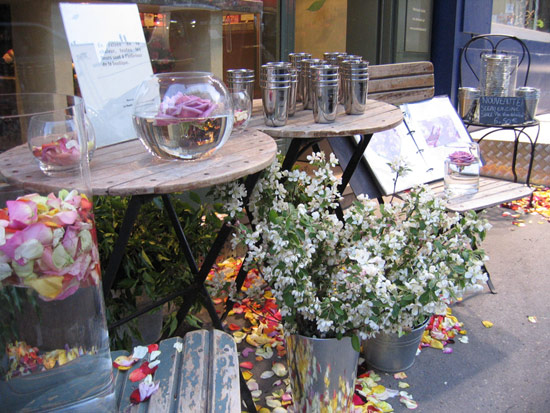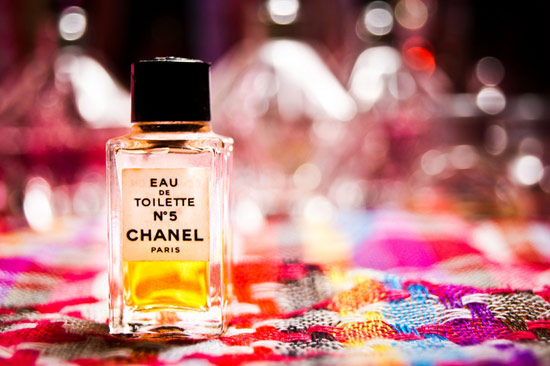Culture and Society: Gift Giving
General
The French pride themselves on restraint and good taste, and public shows of generosity are not de rigeur. Thus, gifts are only given on certain occasions and are carefully judged according to the recipient’s personal taste. Both personal and business gifts are usually accompanied by a handwritten note. As with other countries, a lavish present might be taken as a bribe.
Hospitality Gifts
When invited to someone’s house for dinner, it’s polite to bring chocolates, a dessert wine, or an after dinner liqueur. These items should be of the highest quality, for France has lofty culinary standards that date back to its agricultural boom in the nineteenth century. Flowers can be brought on the day or sent beforehand, but if the former option is taken, the flowers are normally removed from their bouquet before being presented to the host. Typically, the guest hands over the present the very moment he or she arrives. The gift is usually wrapped elegantly in sober-colored yet stylish paper, and opened immediately. After the event, it is polite for a guest to send a gift to express gratitude for the hospitality. Acceptable items include a basket of fruit or flowers, always with a handwritten note expressing one’s gratitude.
Personal Gifts
In France, gifts are given on special occasions such as birthdays, baptisms, naming ceremonies, weddings, and graduations. On or around his or her birthday, a French adult tends to invite a large group of friends and family members to his or her home for a dinner party. Guests normally bring small but high-class gifts, sometimes of intellectual merit (e.g., a book or CD with an avant-garde bent). This reflects the Gallic obsession with art and culture. Expense seldom affects a French person’s choice of present. Children’s birthday presents tend to be inexpensive toys purchased from a leading store such as Grande Recre. As per hospitality gifts, the wrapping paper is sober-hued and applied attractively. Upon arrival, a guest hands over the present right away and the recipient opens it immediately. When not invited to such an occasion, it is polite to send a congratulatory card. When a baby is born, its relatives typically send it a small toy or an item of clothing. Flowers for its mother are also acceptable.
French wedding customs differ from region to region. A man confirming his engagement to a woman with a gift of jewelry is an ancient tradition that persists across the country. Many French couples will provide a list of presents for their wedding guests to choose from, the theme usually being practical household goods. All-white bouquets of flowers are customary too.
Due to its Catholic culture, French society is very family-oriented. Thus Christmas is a time when kith and kin gather together and exchange gifts, although this actually takes place on Christmas Eve rather than on day itself. By and large, children receive candies and small toys while adults exchange more practical items such as clothes, stationery, and gadgets.
Business Gifts
Gifts are rarely given in French business because no one wants to be accused of bribery, displays of open-handedness are considered rude, and gift-giving per se is normally limited to close friends and family. When a business deal has been sealed, however, foreigners are sometimes welcome to give gifts that represent their home country. The French also appreciate intellectually- or culturally-oriented gifts such as objets d’art, books, or music. French businesspeople prefer to exchange holiday cards, which are mailed in time for Christmas and New Year.
Taboos
The main gift-giving faux pas in France relate to presents that might be construed as patronizing or presumptuous. One seldom gives a French woman a foreign-made perfume, because the French are renowned for their perfume-making skills. Also, such a gesture may be regarded as amorous. Similarly, a dinner party guest is unlikely to bring wine—a French specialty—as this may be taken as a criticism of the host’s choice. In business, on the rare occasion one may give a gift, the French never accompany it with a business card, as this is thought to be boastful.
In French culture, flowers symbolize different emotions and states, so people usually avoid sending carnations (which represent bad will), roses (love), or chrysanthemums (death/funerals). An ancient European superstition dictates that a bouquet of flowers adds up to an odd number, but never 13.
On a more general level, the French don’t tend to give presents to colleagues or acquaintances (i.e., people with whom they’re not intimate).
Article written for World Trade Press by Tom Sykes.
Copyright © 1993—2025 World Trade Press. All rights reserved.

 France
France 
